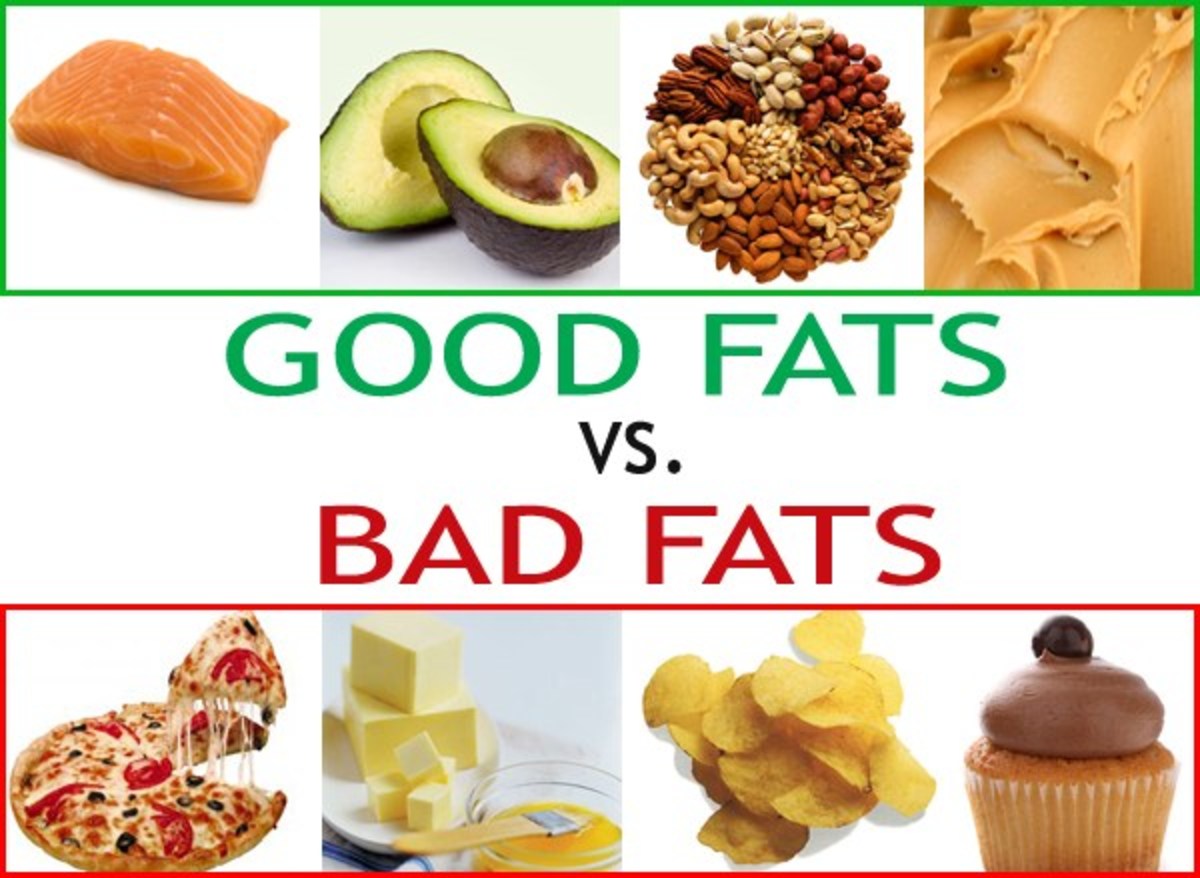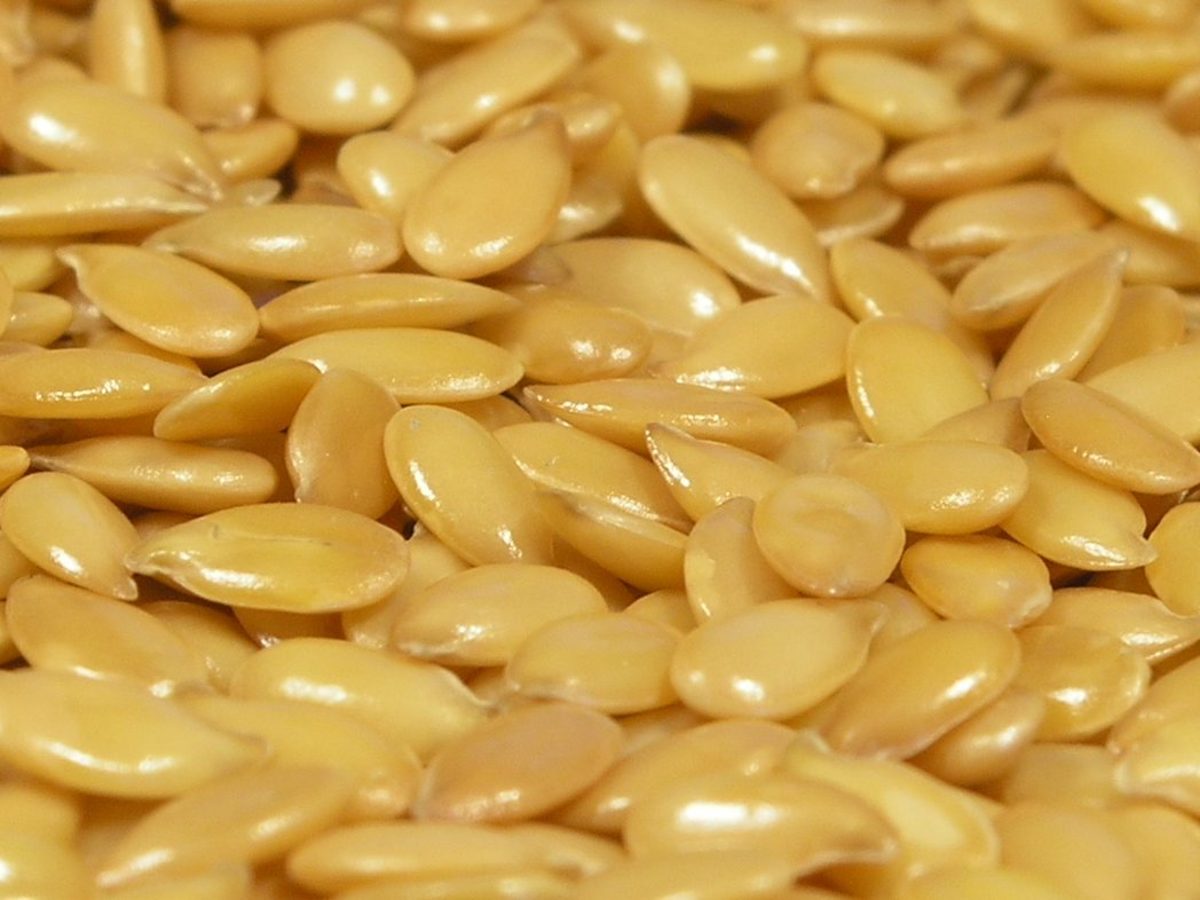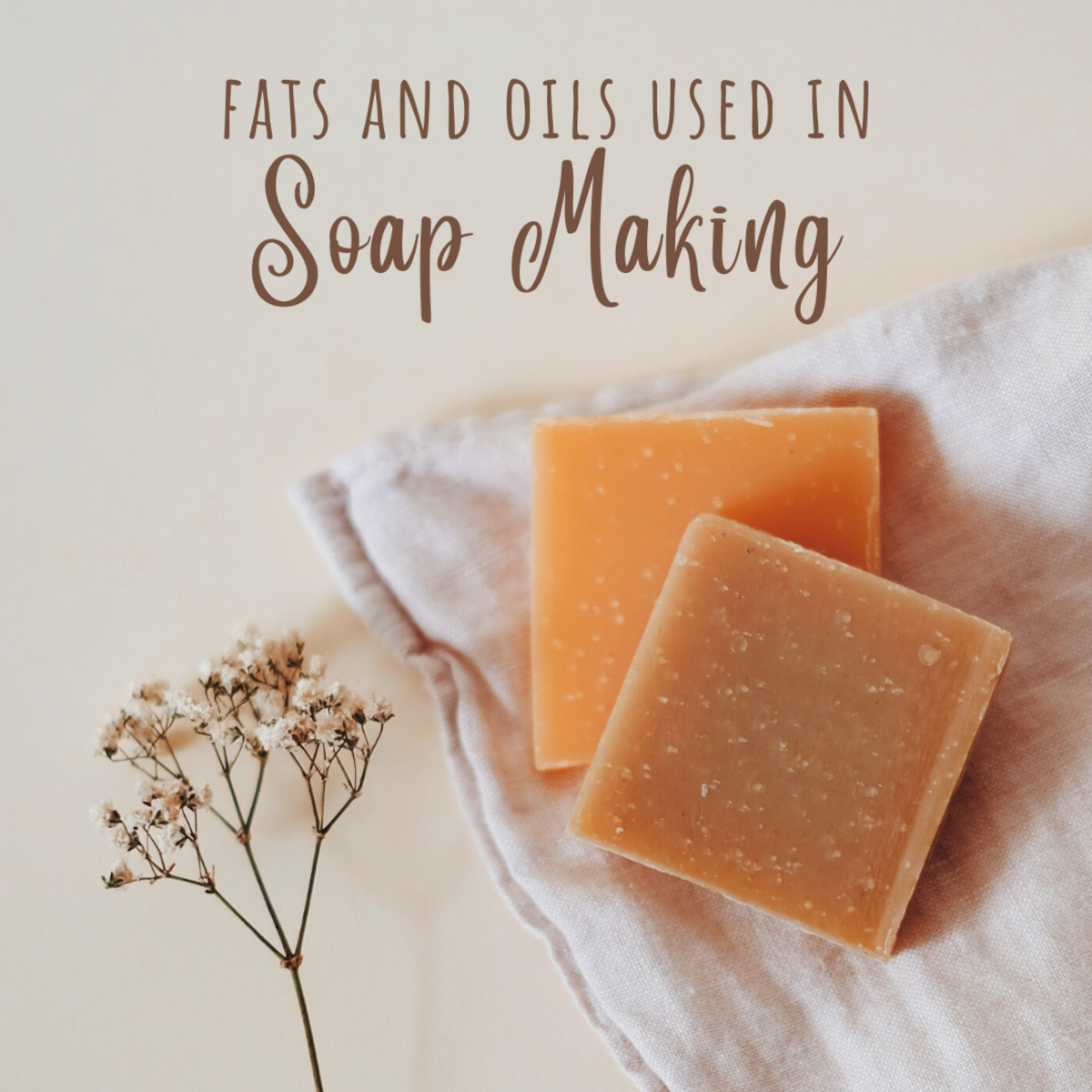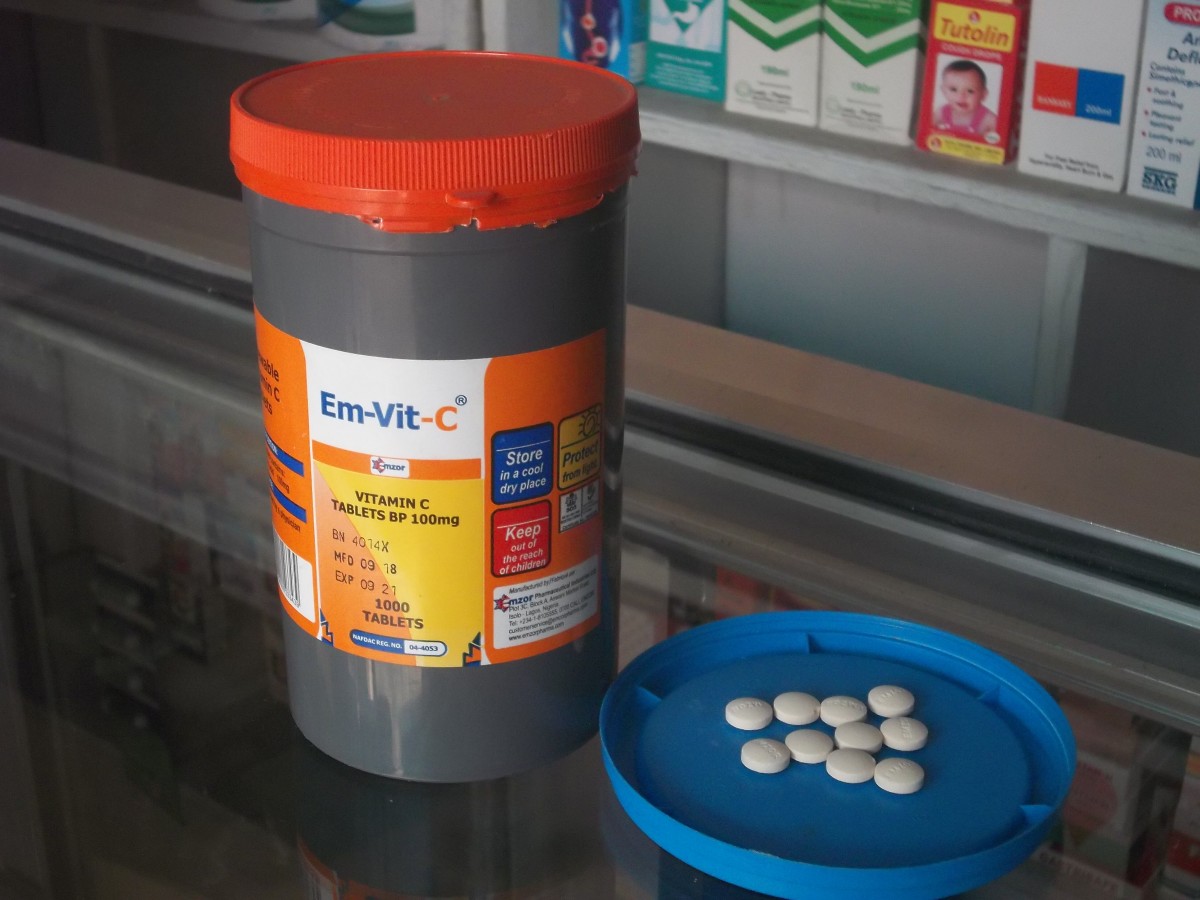The Basics about Fats
Are fats that bad?
Do you run away every time you hear the word “fat”? With this article you will find out that not all fat is bad as we’ve long believed. So, stop running and learn some facts about fats.
At 9 calories per gram, fat is a major source of energy. This macronutrient helps your body digest, absorb and transport some essential vitamins and minerals; and it is also needed to build cell membranes and to form a protective cushion for your organs. However, you need to choose the right types of dietary fats to consume. Did you ever heard about good, saturated and bad fats?!
Good fats
Unsaturated fats are the healthy ones. They improve blood cholesterol and triglycerides levels, ease inflammation, protect your heart and support overall health.
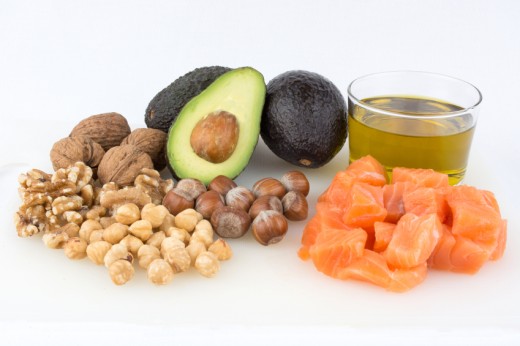
These are the ones you should choose and they include:
- monounsaturated fats - available in avocados, vegetable oils and most nuts.
- polyunsaturated fats - essential fats which comprise the omega-3 and omega-6 fatty acids. Once your body can’t make them, you must get these polyunsaturated fats from food, such as fatty fish (salmon, sardines, tuna), flaxseeds, walnuts, soybean oils; and also from the supplementation with omega 3, 6 e 9.
Saturated fats
These are the ok-in-moderation fats, found in read meat, whole milk, cheese, butter and coconut oil. They are not as harmful as you might think, participating in the production of hormones, such as testosterone. However, a diet rich in saturated fats can raise the LDL (“bad”) cholesterol levels. So, you should eat them with moderation and, every time you need to cut on foods like read meat and cheese, replace them with the fish, nuts and healthy oils instead of refined carbs.
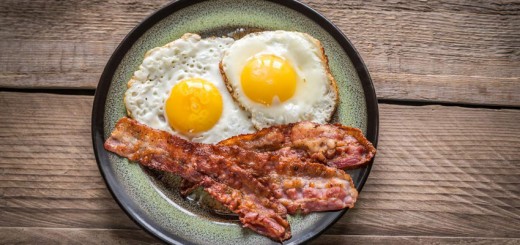
Bad fats
Now on to the really bad guys: trans fats. These are normal fat molecules that have been transformed during a process called hydrogenation, when liquid vegetable oil is heated and combined with hydrogen gas. Trans fats increase your LDL cholesterol levels and your risk of certain diseases. The main sources of these fats are processed foods: fast food, cookies, chips, microwave popcorn, some margarines, pre-mixed products and anything with the word “hydrogenated” listed in the ingredients. These are the foods you should continue to run away from!
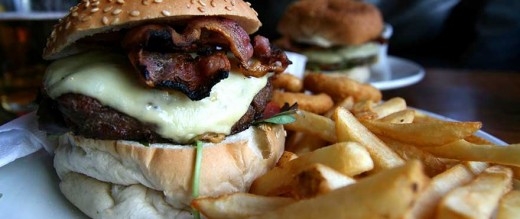
So, you should:
- Choose the right types of dietary fats
- Consume saturated fats in moderation
- Avoid foods with trans fats
- When in doubt, stay away from foods with the word “hydrogenated” listed in the ingredients
Prozis - the biggest online sports nutrition store in Europe
- Prozis - Sports Nutrition and Food Supplements | Online Store
Find Sport Supplements, Protein Powders, Vitamins and all the Nutrition you need. Over 3000 orders a day shipped to more than 100 countries. Fast Delivery!


